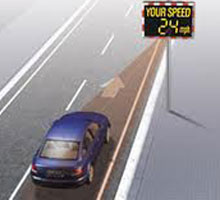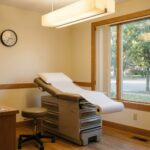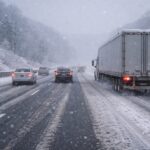
We’ve already talked about chain collisions and how we prove who hit whom first. The buzz this week concerns new black box technology already available in Europe and the U.K. that provides information which may impact insurance claims. As of 2015, the eCall system will be mandatory on all new cars sold in the Europe and the U.K. The add-on cost to the consumer is about $170, and it provides automatic dialing to emergency services if the airbags inflate. A signal from the “black box” via GPS pinpoints the car’s location and sends it to emergency responders.
Once the system is widely used, insurance companies and attorneys will certainly access this data as evidence in car and truck accident claims. While this may help prove liability in collisions, there are issues regarding privacy. The company producing the device claims that the system will only be used if there is an accident. While it is unclear when it will be used in the U.S., the technology in use today can probably be tailored to include an eCall tracing system.
Sounds intrusive? Close to home, Nashville just spent $23 million on a new, updated system for tracking police, safety and emergency personnel in the field. This type of system often uses GPS technology to find you if you make a 911 call on your cell phone. The system will be expanded to surrounding counties for wider coverage in Middle Tennessee, and police can cooperate to track suspects over county lines.
Many police departments today track incoming emergency calls via GPS, and have multiple surveillance cameras that allow them to pan and zoom, and even record accidents happening on busy routes and intersections. Private firms also use camera surveillance on-site at malls, parking lots, and other venues.
If you drive a company car or truck for work, your firm may track your route and speed. If you deviate from your employer’s working routes or spend time in a non-job-related location, your boss will know. This can impact whether trucking companies accept liability for collisions caused by drivers who deviate from the companies’ business. If you are a victim of a hit-and-run truck accident, the company’s tracking system will be able to confirm where every truck they operate was at the time of your collision.
What’s the bottom line in this surveillance environment?
The collected data may help your attorney prove your claim or defend against a lawsuit.
Whether “big brother” is tracking you or not, drive defensively, responsibly, and carefully!
If you need help or more information, call 1-800-967-2246 or email Jay Stillman at: jay@jstillman.com






